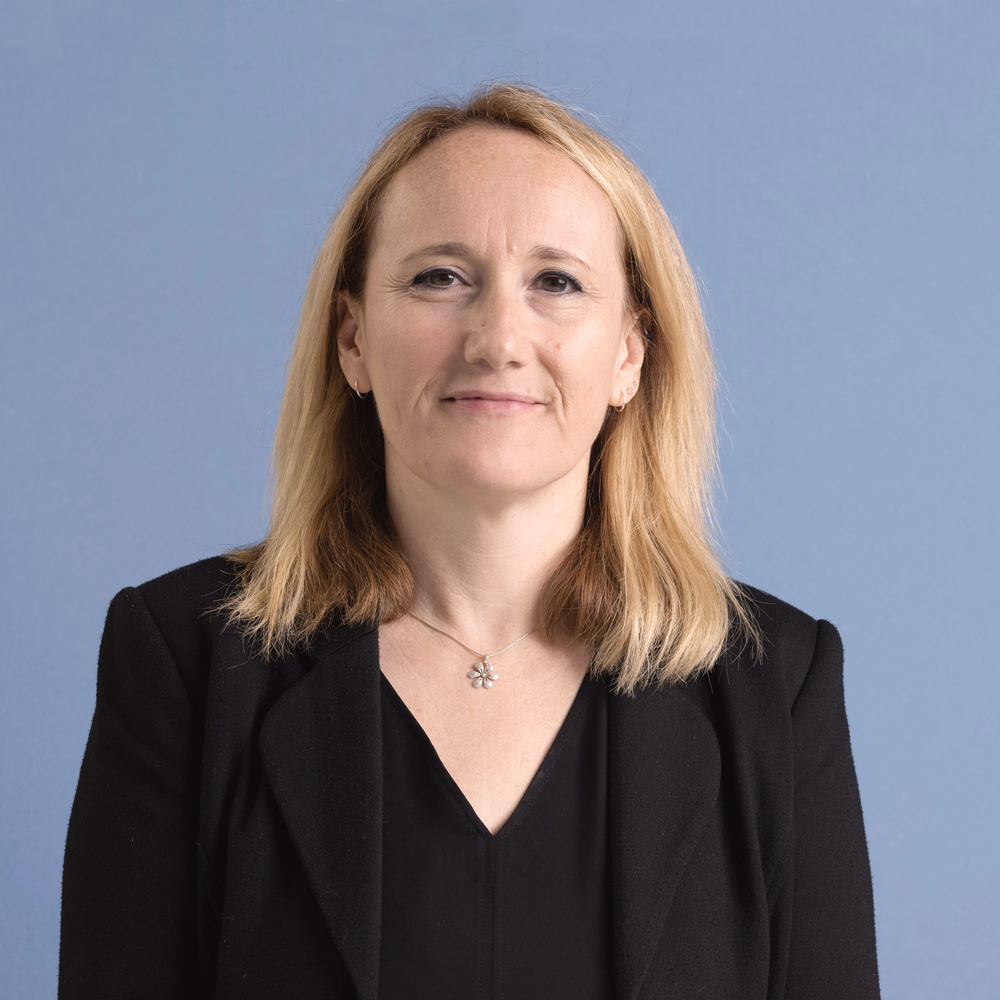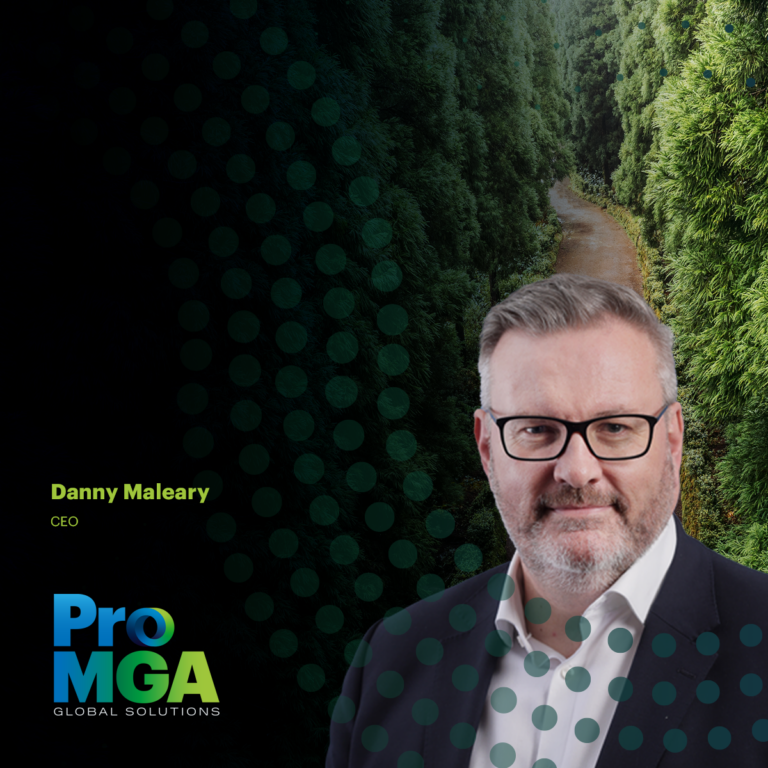
Danny Maleary was interviewed by AM Best during the recent Rendez-Vous de Septembre conference in Monte Carlo.
Danny introduced Pro MGA’s new specialty capital division (Orb Specialty), which is designed to connect investors with MGAs and help bridge the funding gap that many specialty insurers face.
Speaking with AM Best, Danny explained the how the new unit reflects growing demand for flexible and well-structured capital solutions that support entrepreneurial MGAs, while also offering investors a more transparent route into the sector. This builds on Pro MGAs role as a platform for innovation and long-term growth across the MGA market.
You can watch the full interview below which is shared with the kind permission of AM Best.

To contact our PR team directly please use the link below
To speak to the Pro Global team please feel free to reach out to us at:

Empowering carriers to deploy capacity efficiently and MGAs to access multi-year stability, Orb Specialty sits at the centre of the trusted Pro MGA Global Solutions ecosystem. Initially launching in the UK and operating as an appointed representative of Pro MGA Solutions Ltd, the MGU will centralise and distribute capacity to select MGAs under incubation, leveraging Pro Group’s regulatory, compliance, and operational infrastructure.
Orb Specialty launches with a mission to enable carriers to have a single point streamlined route to MGA distribution and centralised oversight. At the same time, the platform will provide MGAs with guided capacity partnerships, data driven portfolio management, and a proven incubation framework via the Pro MGA Global Solutions ecosystem. Positioned for scalable, multi-jurisdictional growth, the new platform offers a capital-light, performance managed, governance-led solution that enhances efficiency and underwriting confidence across the fast-growing global delegated underwriting market.
The platform is built on three core principles:
Danny Maleary, CEO of Pro MGA Global Solutions, said: “Our MGA ecosystem thrives when capacity partners and MGAs are strategically aligned. A highly innovative tech-enabled MGU, Orb Specialty will bring together the right capacity, the right underwriting talent, and the right tech infrastructure – enabling MGAs to focus on what they do best: delivering profitable underwriting. Orb Specialty is being built to redefine delegated capacity by becoming the trusted, global data-driven bridge between insurance capital and entrepreneurial underwriting talent worldwide. With the launch of Orb Specialty, we’re building an integrated MGA marketplace focussed on underwriting excellence.”
Steve Lewis, CEO of Pro Global, said: “The launch of Orb Specialty is a natural evolution of Pro’s commitment to supporting entrepreneurial underwriters and capacity providers alike. By combining Pro MGA Global Solutions’ proven incubation infrastructure with a dedicated MGU platform, Orb Specialty creates new opportunities for sustainable, profitable growth across our growing ecosystem. We look forward to working with our capacity and broking partners to align our efforts, strengthen underwriting confidence, and deliver exceptional MGA performance.”
Ends
About Pro MGA Global Solutions
Pro MGA Global Solutions is an independent incubation partner that scales with clients’ ambitions. Pro MGA Global Solutions offers both entrepreneurial support – including set up, guidance and regulatory oversight that enables MGAs to flourish – together with operational support including underwriting oversight expertise and regulatory platforms that enable MGAs to trade.
For more information, please visit: https://pro-global.com/pro-mga/
About Orb Specialty
For more information, please visit: https://orbspecialty.com/

To contact our PR team directly please use the link below
To speak to the Pro Global team please feel free to reach out to us at:
Dani Rosser, head of Broker Services, Pro Global examines why operations risks cannot be ignored despite a rapidly changing risk landscape.
In an industry focused on managing emerging risks, cyber, climate and geopolitical instability, it’s often the operational risks that grow quietly in the background, only to cause outsized damage when left unchecked. One under-reported risk lurking on balance sheets is unallocated or unmatched cash: for some brokers it can grow into a black hole in accounts that silently erodes profitability, impairs governance and reputation, and increases exposure to regulatory censure.

At this year’s British Insurance Brokers’ Association (BIBA) Conference, CEO Graeme Trudgill highlighted the regulatory, political, and technological developments expected to influence insurance brokers in the coming year. Trudgill reflected on the fact that the FCA made it clear that we’re entering a “new era of regulation” for insurance intermediaries, one where operational resilience, financial hygiene, and governance aren’t just hygiene factors but regulatory priorities. In this climate, the question is no longer whether you can afford to fix your operational inefficiencies. The question is whether you can afford not to.
As we look ahead to 2026, with topline growth stable but slow, broker margins depend increasingly on brokers’ ability to drive internal efficiencies and tighten operational control.
Yet for some brokers, the greatest threats are still internal, and invisible until they reach a critical point.
Unallocated cash often stems from legacy migrations and reconciliation issues, poor data hygiene, or a lack of process alignment between technical and Insurance Broker Accounting (IBA) teams. These issues may not make headlines, but if left unchecked over time, they quietly accumulate into material financial risk. And in a tightening regulatory climate, they also raise red flags for auditors and watchdogs alike.
Tens of millions in Premium is Unallocated
In one broker cash project we advised on, over 7,900 transactions were identified, involving premium and claims funds spread across more than 100 clients and insurers – with no single value assigned, only mounting complexity. In another case, we supported a broker with £30 million in aged debt and unallocated cash, tied up in more than 70,000 transactions.
As re/insurance businesses grow, merge, or undergo system migrations, the volume of unmatched transactions tends to grow, not shrink. And the effects are cumulative: older records become harder to trace, skilled resources become scarcer, and legacy data becomes increasingly unreliable.
These numbers aren’t outliers; they’re emblematic of the systemic nature of the problem.
Without robust controls and dedicated reconciliation strategies, the backlog grows – not just in volume, but in regulatory exposure, client trust, and missed commercial opportunity.
Many brokers face common root causes: incomplete remittance data, manual reconciliation processes, staff turnover eroding institutional knowledge, and a lack of standardisation across accounting and reporting practices. The knock-on effect is a build-up of cash entries that cannot be easily applied or explained, impacting liquidity and creating operational drag.
Turning Risk into Opportunity
Despite the complexity, there are encouraging signs of progress. Best practice across the market is evolving to tackle unallocated cash more proactively and holistically. A number of brokers are taking steps to embed systematic solutions, combining data interrogation, governance, and process transformation.
A successful approach typically begins with securing access to historical data and integrating technical accounting insight into cash reconciliation workflows. Leveraging cross-functional teams spanning finance, technical and IBA operations, and credit control is critical to developing a full picture of both the causes and solutions. Prompt query resolution and the use of data-matching tools are increasingly standard, especially when dealing with legacy ledgers.
Structured reconciliation programmes, especially those that incorporate digital tools and project management oversight, can transform what might seem like a burdensome clean-up exercise into a value-enhancing activity. Brokers who have implemented robust IBA protocols and introduced straight-through processing technologies are now reporting measurable improvements in matching rates and operational transparency.
A Future-Proofed Approach
The industry is moving away from fire-fighting legacy issues and towards building resilient systems. Preventative strategies include the standardisation of broker bordereaux and client remittance formats, automation of routine matching, and regular monitoring of aging cash positions. Where once the issue was tackled intermittently, leading firms now treat cash allocation as a continuous improvement process, not a one-off fix.
Importantly, brokers that address their unallocated cash proactively are better positioned to unlock trapped capital, improve reporting accuracy and strengthen client relationships. They also significantly reduce the likelihood of costly remediation projects in the future.
Technical cash management may not be the most headline-grabbing topic in insurance, but its importance is growing fast as a hidden emerging risk for the sector if not proactively tackled. It’s time to close the cash black holes, and close them for good.
Can we add a market-wide estimate? Pro Global estimates there is over £500 million and counting in unallocated cash across broker balance sheets? We have made some estimates in the past – source of $60 million: https://pro-global.com/millions-in-unallocated-premium-sitting-on-re-insurers-books/

Name: Dani Rosser
Job title: Head of Broker Services
To speak to the Pro Global team please feel free to reach out to us at:

To contact our PR team directly please use the link below
We’ve all heard the AI hype, but in insurance, success isn’t about building a robot underwriter overnight. As Toby Fennemore, Solution Architect at Pro Global, puts it: “AI can’t fix bad processes – it’ll just do them faster.”

From wrangling messy data to navigating ethical minefields and regulatory twists, insurers making real progress are the ones getting the basics right. We caught up with Toby Fennemore, Solution Architect, Pro Global to find out how the smartest players are building momentum, and where the rest risk falling behind.
How are insurers tackling data quality, regulation and ethical risks with AI?
Toby: “AI is making headway in allowing us to transform the data into a common format from unstructured data, which is a significant problem in insurance, in order to fully leverage the capability we have to be realistic and map the as-is process and what we can do to streamline the need for data transformation . Insurers have made progress by focusing on data cleansing and structure before applying AI.
But deep-learning models, Generative AI and LLMs add complexity – they’re not always transparent, and that’s a risk when you’re dealing with personal data. Ethical use, regulatory compliance, and model explainability are not nice-to-haves – they’re non-negotiables. The firms getting this right are those treating data quality and governance as strategic priorities, not IT problems. AI is also an environmental challenge, business need to make sure they understand the impact of their AI initiatives on the Environmental side of their Environmental, Social and Governance (ESG) policies “
Q2: What’s the smartest way to approach AI in 2025 and beyond?
Toby: “Understand your processes before you digitise them. Delivering with AI is knowing what you want to solve. That means starting small, testing assumptions, and being crystal clear on how success will be measured. It also means investing in the boring stuff – clean data, consistent workflows, and good change management. Without that, AI is just smoke and mirrors. AI can’t solve bad processes, just do them faster. That said, the biggest gains will come from running two tracks in parallel: a disciplined, process-driven approach and a tech-minded, agile experimentation model. Alongside well-governed AI projects, insurers should also be running smaller, investigative AI pilots. Even when these fail, they offer huge value through insight – accelerating iteration and innovation. Controlled failure becomes one of your most powerful learning tools.”
Q3: Is there a gap growing between AI adopters and AI leaders?
Toby: “Absolutely. There’s a gap widening between those using AI and those who are embracing it at will. AI is becoming a central theme to Insurance Conferences, and those who are agile, experimenting with AI for both directed use case and R&D, will accelerate their business above those who aren’t. We need to be more tech-minded and embrace failure as a way to learn. Those companies who embrace AI and agile experimentation, will gain a wealth of data and knowledge of the best foot forward, while those still deliberating will be left behind.”
Whether you’re AI-curious or already deep in the weeds of model governance and data pipelines, one thing’s clear: the insurers winning with AI aren’t waiting around for perfect conditions, they’re building the right foundations, failing fast, and learning faster.

Name: Toby Fennemore
Job title: Solution Architect
To speak to the Pro Global team please feel free to reach out to us at:

To contact our PR team directly please use the link below
With nearly three decades of experience in the London (re)insurance market, Shayne Caple brings significant expertise in underwriting support, financial and technical accounting, portfolio management, and operational best practices.
As Head of Underwriting Services at Pro Global, Shayne works with dedicated team of over 350 specialists to deliver tailored technical support to more than 50 Lloyd’s and London Market clients. His deep operational knowledge and Prince 2 Practitioner qualification, ensures Pro’s underwriting services blend expertise, efficiency, and creative client-centric solutions.
We sat down with Shayne to explore the current market landscape, the opportunities it presents, and how Pro Global is innovating underwriting support to meet evolving client needs.

Q1: What are the key opportunities you see in the underwriting support market right now?
“The market is ripe for a strategic rethink around underwriting support. One major opportunity lies in moving beyond traditional, transactional models of tactical resourcing; what some still call “body shopping.” Today, the focus is on deploying scalable, onshore expertise that not only fills resource gaps but also drives process optimisation and operational resilience. MGAs, especially, are growing fast and require flexible, multi-class, multi-territory support that combines strong technical knowledge with operational agility.
Q2: What challenges do you think insurers and MGAs face regarding underwriting talent and support functions?
“The biggest challenge is the talent squeeze. Experienced operational support for underwriters – including underwriting assistants, bordereaux analysts, exposure management and credit control experts is in short supply, and both traditional insurers and fast-growing MGAs are competing for the same pool of professionals. This in turn is driving up costs and staff attrition, leading to a continuous cycle of recruitment and training, distracting teams from being able to think more long-term and strategically about evolving their operatig model sustainably. Many MGAs offer flexibility but lack mature support structures, which can limit operational effectiveness. Another challenge is that underwriting teams need more than administrative help, they need empowered, informed support that understands their business nuances and helps remove bottlenecks. Also, offshoring often falls short for underwriting functions due to time zone, expertise, and continuity issues. That’s why we champion onshore, people-centric support models backed by strong operational governance, such as TUPE (Transfer of Undertakings Protection of Employment) arrangements, to maintain continuity, retain knowledge, and improve resilience.
Q3: How is Pro Global innovating to address these challenges and future-proof underwriting operations?
“We take a holistic, people-first approach to underwriting support. This means structuring support teams around consistency, accountability, and continuous upskilling. We embed operational best practices, standardise procedures by line of business, and ensure clear task ownership so underwriters focus on decision-making rather than chasing admin. Our experience with TUPE transitions shows how thoughtful change management can stabilise teams, boost morale, and create a foundation for ongoing optimisation. We also integrate technology enablement, automation and data improvements, to reduce manual dependencies and free up skilled staff for high-value activities. Ultimately, by combining human expertise with technology and strategic resourcing, we help clients build underwriting operations that are scalable, resilient, and ready for future growth.”
Ultimately, our extensive market experience and exposure to multiple different operating models working with leading insurance businesses gives us a unique insight into “what good looks like”. We harness that knowledge and perspective to challenge a clients’ traditional model and to help them embed a best practise / optimised approach to delivering the successful outcomes they are focussed on achieving.
Thanks for your time, Shayne! If you want to learn more about Pro Global’s Underwriting Services, get in touch: getintouch@pro-global.com

Name: Shayne Caple
Job title: Head of Underwriting Services
To speak to the Pro Global team please feel free to reach out to us at:

To contact our PR team directly please use the link below
June’s ALARM Risk National Conference 2025 brought together risk and insurance professionals from across the public sector – and once again reinforced just how much the sector is evolving. From conversations with local authorities and insurers alike, one theme stood out loud and clear: the time for technology-enabled transformation in public sector claims is now.
Although Pro Global has long advocated for a smarter, more data-driven approach to complex liability claims, it was clear from this year’s conference that the market is listening, and engaging with this challenge.

Consolidation Is the Word of the Day
The majority of public sector organisations we spoke to are actively reviewing and consolidating their claims systems. Whether driven by cost control, complexity, or compliance, there’s a clear appetite to rationalise fragmented legacy systems and build more connected, agile, and future-ready infrastructures.
However, choosing the right solution remains a challenge. With a crowded tech landscape and rising scrutiny over procurement spend, many delegates expressed the need for trusted guidance on how to invest wisely – balancing automation with human expertise.
Collaboration Is Gaining Ground
We also heard encouraging signals around greater collaboration between councils, insurers, and suppliers, from shared service models to joint risk pools and integrated claims partnerships.
The benefits are compelling: more consistent handling, lower administration costs, and real-time visibility of data across stakeholders. Technology is enabling smarter handoffs, automated workflows, and shared dashboards to reduce duplication and accelerate decisions.
This is a trend we believe will only accelerate as councils seek to do more with less, and demand more value from their insurance partnerships.
Data-Driven Decision-Making Is Maturing
Across the board, organisations are getting serious about claims data. From identifying fraud earlier to understanding recurring loss patterns, the focus is shifting from reactive processing to proactive risk management.
Yet digital maturity levels still vary widely. We had several conversations about how tools like our PELICAN platform can help drive consistency and smarter insights through:
For many, the question is no longer why transform claims handling – it’s how fast can we get there?
We’re encouraged to see public sector organisations asking tough questions about the future of liability claims. The desire to modernise is real – but so is the risk of fragmentation, duplication, or choosing a tool that doesn’t deliver long-term value.
That’s why we believe the answer lies in combining human expertise with the right digital enablers, solutions that reduce operational burden, improve outcomes, and ultimately save money for the public purse.
Further reading:
Harnessing Technology in Public Sector Claims Management
Cutting Costs, Not Corners – Four Steps to Smarter Claims Management
Want to continue the conversation, don’t hesitate to reach out: getintouch@pro-global.com

Name: Kristy Lovegrove
Job title: Group Head of Technology and Digital Services
To speak to the Pro Global team please feel free to reach out to us at:

To contact our PR team directly please use the link below
The first-ever Insurer European MGA Summit in Amsterdam brought together a vibrant cross-section of market leaders, innovators, and entrepreneurs– and the message was clear: Europe’s MGA sector is thriving. But navigating its complexity requires a new level of governance, transparency, and trust.
From the floor of the event, optimism was abundant. Tech-enabled MGAs are growing fast, driving product innovation and improving distribution. In Italy, for example, the MGA market features over 100 participants and generates €2.6 billion in gross written premiums annually, the second largest in continental Europe. This market thrives on specialisation in financial lines, surety and specie, and digital distribution, despite the lack of a specific regulatory framework for MGAs. Boasting over 180 MGAs and an estimated regional premium of around €3.5 billion, Benelux is currently the most well-established MGA markets in Europe. This success is underpinned by robust regulatory frameworks and efficient levels of data transparency, especially in the Netherlands.
Mirroring the upward trends observed in more established MGA markets such as the US and UK, the growth in delegated authority appears to be a continental phenomenon, extending beyond the London market. Currently, approximately 40% of Lloyd’s business is delegated, and this figure is expected to rise.
However, particularly in the Lloyd’s market, there is a noticeable sense of caution. They are keen on ensuring controlled growth. With an emphasis on the necessity for systems, procedures, and processes to be very robustly established before allowing any significant expansion.
That’s where audit and advisory expertise comes in. A key takeaway from my conversations at the Summit was the enabling role that trusted advisors play in helping insurers and capacity providers meet the moment. With deep experience in Europe and an expanding footprint in Italy, our audit & advisory solutions support clients in five key areas:
As the MGA model matures across Europe, the opportunity is huge – but so is the responsibility. It was clear from Amsterdam that success in this next phase will hinge on stronger partnerships, clearer data, and robust oversight.
We’re proud to be supporting our clients in building a more resilient, confident, and future-ready European MGA market. Find out more about our delegated authority audit services in Italy


Name: Francesco Rastrelli
Job title: Senior Auditor
To speak to the Pro Global team please feel free to reach out to us at:

To contact our PR team directly please use the link below
Our Group Head of Technology and Digital Services, Kristy Lovegrove, caught up Hattie Armstrong, Host of the We are Insurtech Women podcast, for a compelling and dynamic interview highlighting the importance of understanding processes before implementing technology. It is a clear and critical message, particularly with the fast-evolving and significant impact of Artificial Intelligence (AI) in the industry as well as the need to embrace lifelong learning when it comes to technology.

Kristy joined Pro Global (Pro) back in December 2020 to spearhead a transition programme that aimed to leverage its applications and infrastructure, as well as transforming the way the firm worked with technology, during a large growth period.
Coming from a background, which predominantly focused on digital transformation and transition programmes across the financial services and major technology houses, Kristy’s experience complemented Pro’s approach to listening to market needs and developing solutions that directly address them.
Kristy said: “It’s interesting because I had always worked technology-first, whereas Pro is very much SME-led. It’s just a great place to be with technology, to be able to leverage both. It’s been really exciting to understand where you can make a difference.”
Kristy’s first stint in the insurance world prior to Pro saw her working on a claims system from a technology standpoint.
Of late AI has taken off in the insurance industry.
AI and Machine Learning Opportunities
Kristy highlighted the opportunities around AI and machine learning for the insurance industry.
“It’s about improving and increasing data quality [and] processing efficiencies, more prediction around missing data points, more accuracy in your risk assessment and pricing. The insurance market is still extremely document heavy and AI is allowing us to ingest more of that data and [make] quicker decisions. In a lot of organisations we have lots of data, we just don’t have the structure to get through that and AI is helping us generate those responses,” she added.
One example where AI has been beneficial, Kristy noted, is claims, where summarising large document sets is necessary, the data here includes First Notification of Loss, dates and details of the claim.
“It’s really helpful for claims handlers to be able to get that data more efficiently and quickly. From a reporting and analytics perspective as an organisation like Pro, being able to see trends, predictions,and the cost of the claim, is all really interesting. The biggest point people are learning is that you have to go into proof of concepts, and you have to understand what you are trying to achieve with AI and streamlining,” Kristy explained.
Therefore, sufficient planning is vital to benefit from the cost efficiencies of AI.
In terms of primary differences in adopting automation and subsequently tailoring solutions for reinsurers and insurers, Kristy noted that no firm does anything in the same manner.
Kristy continued: “A lot of what we look at is process optimisation – insurers are typically focusing on streamlining customer facing processes like claims handling, policy administration, customer experience and operational efficiency. We see more interaction on the idea of chatbots, mobile apps and automated underwriting
“Reinsurers, on the other hand, tend to concentrate on optimisation around risk assessment management processes like automation, data analytics and modelling reporting capabilities to better evaluate and manage large scale risk.”
But technology is not everything.
Never standing still
Kristy stressed the importance of continuously reviewing and evaluating processes to optimise workflows when it comes to technology. This includes working out the pain points of the team actually using the technology.
Ultimately, as technology is always evolving, keeping pace, being open to learning and asking questions continuously is key.

Name: Kristy Lovegrove
Job title: Group Head of Technology and Digital Services
To speak to the Pro Global team please feel free to reach out to us at:

To contact our PR team directly please use the link below
The UK insurance market is poised for continued growth, with EY forecasting a 5.2% rise in non-life insurance premium income in 2025. This growth presents a prime opportunity for MGAs and brokers to strengthen their collaboration, ensuring that businesses, particularly SMEs, have access to tailored, high-quality insurance solutions.
At Pro MGA Global Solutions, we currently manage 46 MGAs spanning over 30 classes of business – and this is just a snapshot of the market’s diversity. We are seeing a growing trend of MGA business plans focusing on high-quality partnerships, particularly those reaching regional brokers with propositions designed for the SME market. The role of MGAs in underwriting innovation and market agility is critical, but their success is intrinsically linked to strong broker relationships.

The backbone of distribution
Regional brokers remain the backbone of UK insurance distribution, serving local businesses with in-depth knowledge of client needs. For MGAs, these brokers offer vital market access, ensuring that specialist underwriting capabilities reach underserved segments. This partnership is mutually beneficial – brokers gain access to bespoke products that large insurers may not provide, while MGAs benefit from the brokers’ on-the-ground insight into customer risk profiles.
SMEs in particular rely on brokers who understand their industries and risks. MGAs can enhance this offering by developing innovative products that cater to niche business needs, ensuring that the right coverage is available where it is needed most. The ability of MGAs to design, price, and distribute specialist policies with agility makes them an essential part of the value chain, complementing brokers’ advisory roles.
Examples that highlight the evolving nature of broker-MGA relationships include the innovative work of companies like Aurora and blip. Aurora, a digital MGA, offers businesses tailored, easy-to-understand, and affordable insurance products in real-time. This is made possible through their proprietary algorithmic underwriting platform, which supports over 700 trade types. By utilising hundreds of data points, Aurora has revolutionised the insurance procurement process, enabling the instant purchase of complex policies. This innovation is further enhanced by their data-driven analytics, providing brokers with valuable insights to help clients make more informed decisions from a diverse and expanding portfolio of leading insurers.
Similarly, blip stands out as a digital-first insurance provider for small businesses. By offering competitively priced, clear, and accessible insurance products, blip enables members to not only save money but also share in profits and be part of a growth-focused business community. Their model highlights how MGAs can build strong relationships with brokers and clients, providing a comprehensive offering that aligns with the needs of small businesses.
At Pro MGA Global Solutions, we are also exploring similar partnerships to expand our offerings, collaborating with markets and businesses that unlock new growth opportunities while ensuring access to the right coverage for their unique needs. Our goal is to work closely with markets and brokers to develop propositions that help clients navigate an increasingly dynamic landscape – watch this space for further updates.
Regulation, Regulation, Regulation
The introduction of the FCA’s Consumer Duty has reinforced the need for MGAs and brokers to deliver fair value and ensure good outcomes for clients. This regulation places greater emphasis on providing relevant, affordable, and tailored insurance solutions, particularly for SMEs that may struggle to find suitable cover from traditional insurers.
By working closely with brokers, MGAs can develop policies that align with these principles – offering transparent pricing, clear policy wording, and flexible coverage options that truly support the UK’s SME sector. The challenge lies in balancing commercial sustainability with affordability, ensuring that businesses can access the protection they need without unnecessary complexity or cost.
The UK MGA sector is well positioned for growth, but its success depends on strong broker relationships. As supply chain pressures ease and economic stability is forecast, this alignment will be crucial in ensuring that brokers can offer tailored, competitive solutions in a rapidly evolving risk environment.
This piece was originally published in the May issue of The Broker, read it here

Name: Danny Maleary
Job title: CEO, Pro MGA Global Solutions
To speak to the Pro Global team please feel free to reach out to us at:

To contact our PR team directly please use the link below
MGAs and brokers offer complementary value in the ecosystem of insurance, each playing a distinct and vital role in insurance distribution. MGAs bring specialist underwriting expertise and product innovation, while brokers offer trusted client relationships, and deep market insight. Far from replacing brokers, MGAs rely on strong partnerships to ensure that tailored insurance solutions reach the right markets – particularly SMEs that may otherwise struggle to access appropriate coverage.

The Strength of the MGA-Regional Broker Relationship
Regional brokers have long been the backbone of the UK’s insurance distribution network, serving local businesses with a deep understanding of their clients’ unique needs. For MGAs, these brokers offer invaluable market access, allowing specialist underwriting capabilities to reach underserved or niche segments.
Recent research from IBISWorld highlights the continued expansion of the UK insurance agents and brokers sector, with revenues rising at an annual rate of 8.5% to reach £21.4 billion. This growth underscores the critical role brokers play in facilitating insurance transactions and advising clients, particularly in the SME market.
However, the evolving risk landscape demands an agile and tailored approach to underwriting – a nimbleness that many large insurers struggle to meet. This is where MGAs thrive, leveraging specialist expertise and data-driven insights to develop products that address emerging risks. By collaborating with regional brokers, MGAs can ensure that these bespoke solutions reach the businesses that need them most, and match the underwriting appetite of their capacity backers.
The Importance of a Streamlined Claims Process
As MGAs continue to evolve, many are developing in-house claims functions to enhance service levels and provide a more seamless experience for policyholders. However, clarity over claims responsibility – whether it sits with the broker, MGA, or insurer – is crucial. continued focus on ensuring clear claims responsibility is essential for good customer outcomes.
To maintain trust and efficiency in the insurance value chain, claims handling must be streamlined, ensuring that policyholders know exactly where to turn when they need support. Fast, transparent, and efficient claims processes should be a priority for all stakeholders, reinforcing the importance of well-defined roles and collaborative service delivery between brokers, MGAs, and insurers.
The Role of Advocacy and Regulatory Clarity
Despite the opportunities within the MGA sector, regulatory uncertainty remains an ongoing challenge. The introduction of the Financial Conduct Authority’s (FCA) Consumer Duty and recent scrutiny around commission disclosure in multi-occupancy buildings insurance have highlighted the need for greater clarity in the MGA model.
The debate on transparency and commission disclosure has raised fundamental questions about the role of MGAs within the insurance value chain. Are MGAs to be treated as brokers, or should they be recognised as agents of insurers? Without clear regulatory distinctions, the industry risks confusion, inefficiencies, and unintended compliance burdens on MGAs.
This is where the Managing General Agents’ Association (MGAA) has played a vital role. Through active engagement with the FCA, the MGAA has helped clarify: under the Insurance Conduct of Business Sourcebook (ICOBS) 6A.7, commission disclosure requirements apply specifically to brokers, not MGAs acting as agents of insurers. This recognition is a significant win for all in the insurance sector and clarifies each distinct position in the insurance ecosystem.
Here at Pro MGA Global Solutions, we call on the MGAA to continue this important advocacy work to ensure that MGAs can operate within a framework that supports innovation while maintaining regulatory compliance.
A Call to Action
As we look ahead, thriving MGAs and regional brokers across the UK are embracing the power of partnership. The strength of the regional broker network is instrumental in ensuring that specialist underwriting capabilities reach businesses that might otherwise struggle to find appropriate cover. At the same time, MGAs are well positioned to champion transparency, best practices, and a commitment to delivering value to policyholders that will ultimately benefit from a more agile, joined-up insurance market.
This piece was originally published in the April issue of The Voice, read it here

Name: Danny Maleary
Job title: CEO, Pro MGA Global Solutions
To speak to the Pro Global team please feel free to reach out to us at:

To contact our PR team directly please use the link below